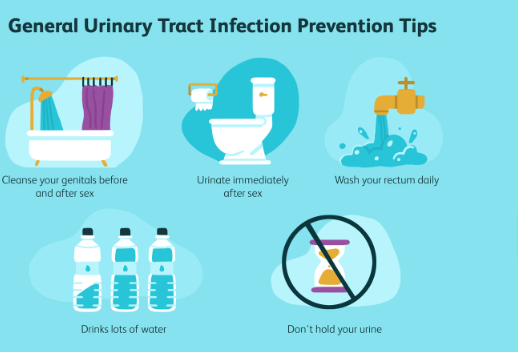UTIs, or urinary tract infections, can hurt and discomfort people, especially young girls. Fortunately, there are a few simple yet efficient precautions you may take to reduce your chance of developing a UTI.
Front-to-Back Hygiene Practice: When it comes to good bathroom hygiene, doctors recommend wiping from front to back after using the restroom. By doing this, you greatly lower the risk of urinary tract infections (UTIs) because it stops bacteria from moving from the anus towards the urethra. (Image source: getty images)
Also read-Marijuana Market Boom Ahead Of Florida’s Cannabis Legalization Referendum

UTIs, or urinary tract infections
Continue Doing Pelvic Floor Exercises Regularly: Girls should be encouraged to do Kegel exercises, or pelvic floor exercises, to strengthen the muscles that support the urethra and bladder. Strong pelvic floor muscles can lower the risk of urinary tract infections by promoting bladder control and preventing urine leaks. (Image source: getty images)

Avoid Holding Urine: Don’t ignore the urge to urinate. Long-term urine retention can create a breeding ground for bacteria. To prevent bacterial growth, girls should be encouraged to empty their bladders regularly.

Urinate Before and After Sex: Sexual activity is common in today’s world and can introduce bacteria into the urethra. To reduce the risk, always urinate before and after sex. This simple procedure helps flush out any bacteria that may have entered the urinary tract during intimacy.

Limit Bladder Irritants: Certain foods and beverages can irritate the bladder lining, making it more susceptible to infections. Encourage girls to cut back on colas, caffeinated drinks, chocolate, and spicy foods if they are prone to UTIs.

Inputs by: Dr. Shilpitha Singh, MS (ObGyn), who is a doctor at Sirona
Also read: Lower Blood Pressure May Help Avoid Fibroids
images source: Google
Disclaimer: The opinions and suggestions expressed in this article are solely those of the individual analysts. These are not the opinions of HNN. For more, please consult with your doctor




































